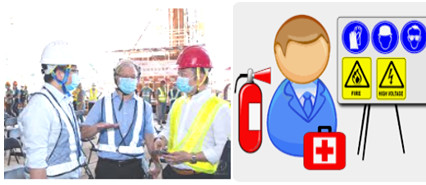
A skilled electrician must have an understanding of the working environment and safety in the workplace. As a result, he was saved from the accident.
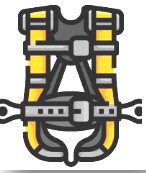
Safety at Work: Safety is the most important thing in electrical work. For example, electric shock is a serious hazard. A person is at higher risk of being harmed when exposed to such hazards. There is a saying in English which means ‘prevention is better than cure’. Safety and proper preparation are prerequisites for an electrician’s job. It is also important to ensure the use of safe clothing and equipment to avoid accidents. Moreover, in the event of an accident, what kind of action to take, should have knowledge and skills. Fire fighting, oxygen and first aid application techniques, hospital, ambulance, fire service and law enforcement communication skills are very important.
সম্পূর্ন বাংলায় পড়তে ক্লিক করুন ……
Occupational health and safety :- Working safely by preventing any kind of adverse conditions is called occupational health and safety or occupational health and safety.
Occupational Hazards:- Occupational hazards refer to the hazards associated with any particular occupation, which may adversely affect the health, safety and well-being of individuals.
or
Occupational hazards refer to potential hazards that individuals may encounter at work, which may adversely affect their health, safety and well-being.
Safety precautions include:-

- Start the machine properly.
- Shut down the machine properly after work.
- You should occasionally check electrical connections.
- Avoid welding and grinding around flammable materials.
- People with mental weakness, illness, fear should refrain from doing electrical work.
- Must have knowledge of first aid in case of electric shock.
- Workers should use appropriate protection like PPE.
- In case of accidental fire, report to the fire station immediately.
Important causes of electrical shock:
A. Causes of electric line
1. Over load 2. Short circuit 3. Earth fault 4. Over voltage 5. Under voltage 6. Sparky 7. Loose connections 8. Lightning and Surge etc.
B. Personal/Human Factors
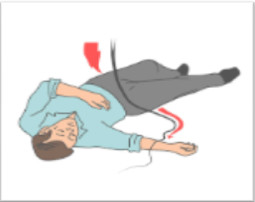
- Violation of electrical laws
- If inattentive to work
- worried at working time
- Because of feeling scared and nervous
- tired at working time
- If you rush to work
- Because of ignorance and lack of intelligence
- In showing extra bravery
- Switch to neutral
- Supplying electricity without making sure that someone is working on the electric line
- Touching a power line without being sure that there is power in the line
- When working on electric lines wear helmet, apron, safety belt, goggles etc.
c. Causes of mechanical failure:
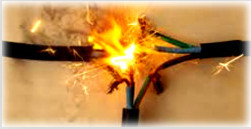
- Due to using defective equipment and goods
- Due to failure of maintenance and control equipment
- If electrical machines, appliances or moving machinery are not properly earthed
- If the insulation of the conducting wire is bad
- If the rotating machine does not have a cover.
Consequences or damages of electric shock:
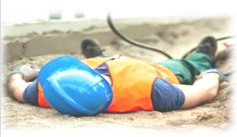
- The heart may stop working
- Current flowing through the body can cause muscle, nerve and tissue destruction
- Contact with an electrical source can cause heat damage to that part of the body
- Electrical shock can cause injury from falls
- Ultra-violet rays can cause blindness in the eyes due to arcing
- Arc can cause hearing loss.
Remedies for electric shock:
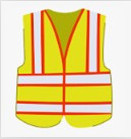
- Electrical laws are not to be violated.
- Be careful while working on electrical lines
- Avoid working on electrical lines with anxiety
- Do not work on electric lines with fear and nervousness
- Avoid doing electrical work when tired or fatigued
- We cannot effectively do the rushing work.
- One should avoid ignorance and stupidity.
- Can’t show excessive bravery
- Put the switch in the neutral and connect the phase wire
- Electricity should be supplied after making sure that no one is working on the electric line
- Electrical lines should be touched with caution, making sure that there is power in the line
- While working on electrical lines, you should wear a helmet, apron, safety belt, goggles, and so on.
- Avoid equipment and goods that are defective.
- We should use proper quality control and maintenance equipment.
- Electrical machines, appliances or moving appliances should be properly earthed
- Cables must be used with proper insulation
Actions to be taken in case of electrocution:
A. Rescue of the person affected by the accident:
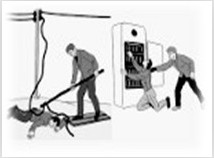
- A person who has been electrocuted should not be touched first.
- If it is connected to the power line, turn off the current or the main switch and free the electrocuted person from the line.
- Dry insulated materials such as pieces of wood, rope, dry cloth, rubber gloves can be used for extrication.
- A person should not touch metal or wet objects when electrocuted from a live line.
- If the situation is such that you do not want to stop the flow of the power line, then the person standing on dry or insulated material such as wood, rubber or plastic should be pushed free from the line.
B. First aid to the person affected by the accident:
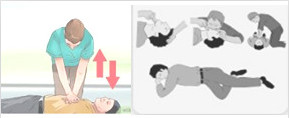
- An electrified person should be removed from the power line and given first aid.
- Check the electrocuted person for pulse and breathing.
- If there is no respiration, we should start artificial respiration.
- If there is no heartbeat, I should apply light pressure on the chest to check for signs of life.
- Under no circumstances should the affected person be left alone, rather the affected person should be kept in a dry and comfortable place. Try to talk to him.
C. Medical treatment of accident victims:

After the first aid, the electrocuted person should be taken to the doctor immediately if necessary and further measures should be taken according to the medical advice.
Personal safety equipment
The use of the following safety equipment is of utmost importance to protect a person from possible harm or accident during workplace operations:
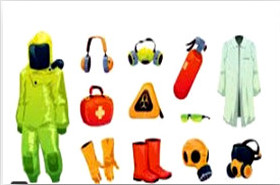
- Eye protection or safety goggles
- ear plugs
- mask
- Hand gloves or hand socks
- Safety Sue
- apron
- helmet
- Safety belt
